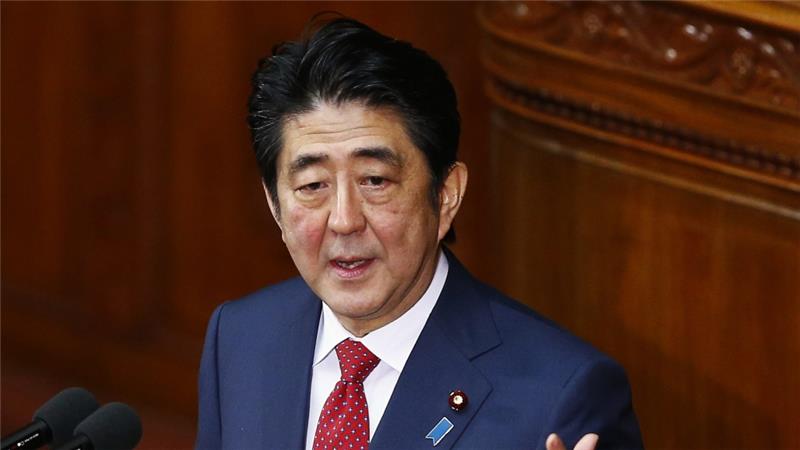Snap elections in Japan?
September 18, 2017 | Expert Insights

Japanese Prime Minister Shinzo Abe may be calling for snap elections in the country a year early.
Background
Shinzo Abe was born into a prominent family and both his father and grandfather were politicians. He served as a Member of the Parliament in Japan from 1993 to 2006. On 26th September 2006, he was elected as Prime Minister. At 52, he was then the youngest PM in Japan’s history since Fumimaro Konoe in 1941. His first term was cut short when he abruptly resigned from his position in 2007. At that time, two ministers in his cabinet stepped down as a result of different scandals. However, Abe said it wasn’t scandal but an illness that led to his resignation. In 2012, he was sworn in as Prime Minister for a second term.
During his second term, Abe enjoyed a reputation as a steadying hand in government. His political party, Liberal Democratic Party (LDP), even changed its rules to allow him to stand for elections for a third time. However, in 2017, he and his party have been bogged down by multiple scandals. In one of the controversies, Abe stands accused of intervening on behalf of his friend Kotaro Kake, to gain approval to open a veterinary school in western Japan. Additionally, Japan’s Defense Minister, Tomomi Inada, has resigned from the cabinet over allegations of a cover-up.
Analysis
The scandals caused Abe’s approval ratings to go down significantly. At one point, he was polling under 30%. However, the mood in the country has changed in the recent weeks. North Korea has fired two missiles over the country and the North Korean leader, Kim Jong Un, has also threatened Japan. Therefore, this has led to a change in the public’s perception of Abe.
Additionally, the nation’s opposition, Democratic Party, has been marred by chaos. The party’s approval ratings are polling in single digits and many prominent politicians within the party have deflected. This has further aided Abe and his cabinet. According to the latest polls, both Abe and the LDP have seen an uptick in approval ratings. One poll has put Abe’s cabinet rating at just above 50%.
Amidst the latest developments, reports have emerged that the Prime Minister intends on dissolving the Lower House and calling for a snap election. According to the media, he could dissolve the Lower House as early as September 28. Abe himself has seemingly confirmed the speculation. He spoke to reporters before leaving for New York to attend the UN General Assembly. He said, “I’ll refrain from answering each and every question about a dissolution of parliament, but I’d like to decide when I return to Japan.”
Koichi Nakano, a political scientist at Sophia University spoke to Financial Times and said that the media reports were part of the Prime Minister’s strategy to gauge the public’s reaction. He said, “This media speculation about a snap election is about testing the mood — using the media to see how it will play before making a decision. The difficulty Mr Abe faces is that there are some pushing him to take a risk with an election but he’s getting to a stage where he cannot fully trust the people pushing in that direction.”
The general elections in Japan were originally slated for 2018.
Assessment
Our assessment is that Shinzo Abe is calling for elections at a time when his popularity seems to be rebounding after tanking from a string of scandals. We feel that Abe has prioritized his own interests rather than trying to handle key security threat that is emanating from North Korea. Several members from the opposition have deflected to Masaru Wakasa, an independent, who is close to Yuriko Koike, the Tokyo governor. We also feel that Abe might lose the two third majority that he enjoys in the Lower House.








Comments